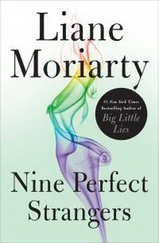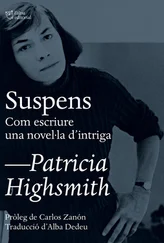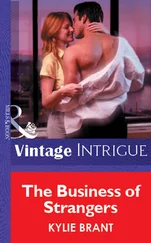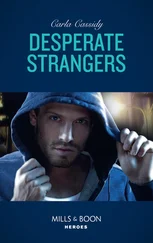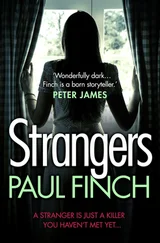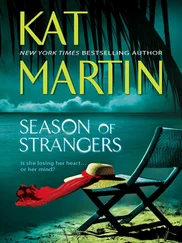“I knew him well,” said Bruno.
Gerard’s small, speckled tan eyes looked at him gravely. “I think he knew you better than you knew him. He left me several letters concerning you, your character, what he hoped to make of you.”
“He didn’t know me at all.” Bruno reached for a cigarette. “I don’t know why we’re talking about this. It’s beside the point and it’s morbid.” He sat down coolly.
“You hated your father, didn’t you?”
“He hated me.”
“But he didn’t. That’s where you didn’t know him.”
Bruno pushed his hand off the chair arm and it squeaked with sweat. “Are we getting anywhere or what’re you keeping me here for? My mother’s not feeling well and I want to get home.”
“I hope she’ll be feeling better soon, because I want to ask her some questions. Maybe tomorrow.”
Heat rose up the sides of Bruno’s neck. The next few weeks would be terrible on his mother, and Gerard would make it worse because he was an enemy of both of them. Bruno stood up and tossed his raincoat over one arm.
“Now I want you to try to think once more,” Gerard wagged a finger at him as casually as if he still sat in the chair, “just where you went and whom you saw Thursday night. You left your mother and Mr.Templeton and Mr. Russo in front of the Blue Angel at 2:45 that morning. Where did you go?”
“Hamburger Hearth,” Bruno sighed.
“Didn’t see anyone you knew there?”
“Who should I know there, the cat?”
“Then where’d you go?” Gerard checked on his notes.
“Clarke’s on Third Avenue.”
“See anyone there?”
“Sure, the bartender.”
“The bartender said he didn’t see you,” Gerard smiled.
Bruno frowned. Gerard hadn’t said that a half an hour ago. “So what? The place was crowded. Maybe I didn’t see the bartender either.”
“All the barmen know you in there. They said you weren’t in Thursday night. Furthermore, the place wasn’t crowded. Thursday night? Three or 3:30?—I’m just trying to help you remember, Charles.”
Bruno compressed his lips in exasperation. “Maybe I wasn’t in Clarke’s. I usually go over for a nightcap, but maybe I didn’t.
Maybe I went straight home, I don’t know. What about all the people my mother and I talked to Friday morning? We called up a lot of people to say good-by.”
“Oh, we’re covering those. But seriously, Charles—” Gerard leaned back, crossed a stubby leg, and concentrated on puffing his cigar to life—“you wouldn’t leave your mother and her friends just to get a hamburger and go straight home by yourself, would you?”
“Maybe. Maybe it sobered me up.”
“Why’re you so vague?” Gerard’s Iowan accent made his “r” a snarl.
“So what if I’m vague? I’ve got a right to be vague if I was tight!”
“The point is—and of course it doesn’t matter whether you were at Clarke’s or some other place—who you ran into and told you were leaving for Maine the next day. You must think yourself it’s funny your father was killed the night of the same day you left.”
“I didn’t see anyone. I invite you to check up on everyone I know and ask them.”
“You just wandered around by yourself until after 5 in the morning.”
“Who said I got home after 5?”
“Herbert. Herbert said so yesterday.”
Bruno sighed. “Why didn’t he remember all that Saturday?”
“Well, as I say, that’s how the memory works. Gone—and then it comes. Yours’ll come, too. Meanwhile, I’ll be around. Yes, you can go now, Charles.” Gerard made a careless gesture.
Bruno lingered a moment, trying to think of something to say, and not being able to, went out and tried to slam the door but the air pressure retarded it. He walked back through the shabby, depressing corridor of the Confidential Detective Bureau, where the typewriter that had been pecking thoughtfully throughout the interview came louder—“We,” Gerard was always saying, and here they all were, grubbing away back of the doors—nodded good-by to Miss Graham, the receptionist-secretary who had expressed her sympathies to him an hour ago when he had come in. How gaily he had come in an hour ago, determined not to let Gerard rile him, and now—He could never control his temper when Gerard made cracks about him and his mother, and he might as well admit it. So what? So what did they have on him? So what clues did they have on the murderer? Wrong ones.
Guy! Bruno smiled going down in the elevator. Not once had Guy crossed his mind in Gerard’s office! Not one flicker even when Gerard had hammered at him about where he went Thursday night! Guy! Guy and himself! Who else was like them? Who else was their equal? He longed for Guy to be with him now. He would clasp Guy’s hand, and to hell with the rest of the world! Their feats were unparalleled! Like a sweep across the sky! Like two streaks of red fire that came and disappeared so fast, everybody stood wondering if they really had seen them. He remembered a poem he had read once that said something of what he meant. He thought he still had it in a pocket of his address case. He hurried into a bar off Wall Street, ordered a drink, and pulled the tiny paper out of the address-book pocket. It was torn out of a poetry book he had had in college.
THE LEADEN-EYED by Vachel Lindsay
Let not young souls be smothered out before
They do quaint deeds and fully flaunt their pride.
It is the world’s one crime its babes grow dull,
Its poor are ox-like, limp and leaden-eyed.
Not that they starve, but starve so dreamlessly,
Not that they sow, but that they seldom reap,
Not that they serve, but have no gods to serve,
Not that they die, but that they die like sheep.
He and Guy were not leaden-eyed. He and Guy would not die like sheep now. He and Guy would reap. He would give Guy money, too, if he would take it.
Twenty-six
At about the same time the next day, Bruno was sitting in a beach chair on the terrace of his house in Great Neck, in a mood of complaisance and halcyon content quite new and pleasant to him. Gerard had been prowling around that morning, but Bruno had been very calm and courteous, had seen that he and his little stooge got some lunch, and now Gerard was gone and he felt very proud of his behavior. He must never let Gerard get him down again like yesterday, because that was the way to get rattled and make mistakes. Gerard, of course, was the dumb one. If he’d just been nicer yesterday, he might have cooperated. Cooperated? Bruno laughed out loud. What did he mean cooperated? What was he doing, kidding himself?
Overhead a bird kept singing, “Tweedledee?” and answering itself, “Tweedledum!” Bruno cocked his head. His mother would know what kind of a bird it was. He gazed off at the russet-tinged lawn, the white plaster wall, the dogwoods that were beginning to bud. This afternoon, he found himself quite interested in nature. This afternoon, a check had arrived for twenty thousand for his mother. There would be a lot more when the insurance people stopped yapping and the lawyers got all the red tape cut. At lunch, he and his mother had talked about going to Capri, talked sketchily, but he knew they would go. And tonight, they were going out to dinner for the first time, at a little intime place that was their favorite restaurant, off the highway not far from Great Neck. No wonder he hadn’t liked nature before. Now that he owned the grass and the trees, it meant something.
Casually, he turned the pages of the address book in his lap. He had found it this morning, couldn’t remember if he had had it with him in Santa Fe or not, and wanted to make sure there wasn’t anything about Guy in it before Gerard found it. There certainly were a lot of people he wanted to look up again, now that he had the wherewithal. An idea came to him, and he took a pencil from his pocket. Under the P’s he wrote:
Читать дальше




